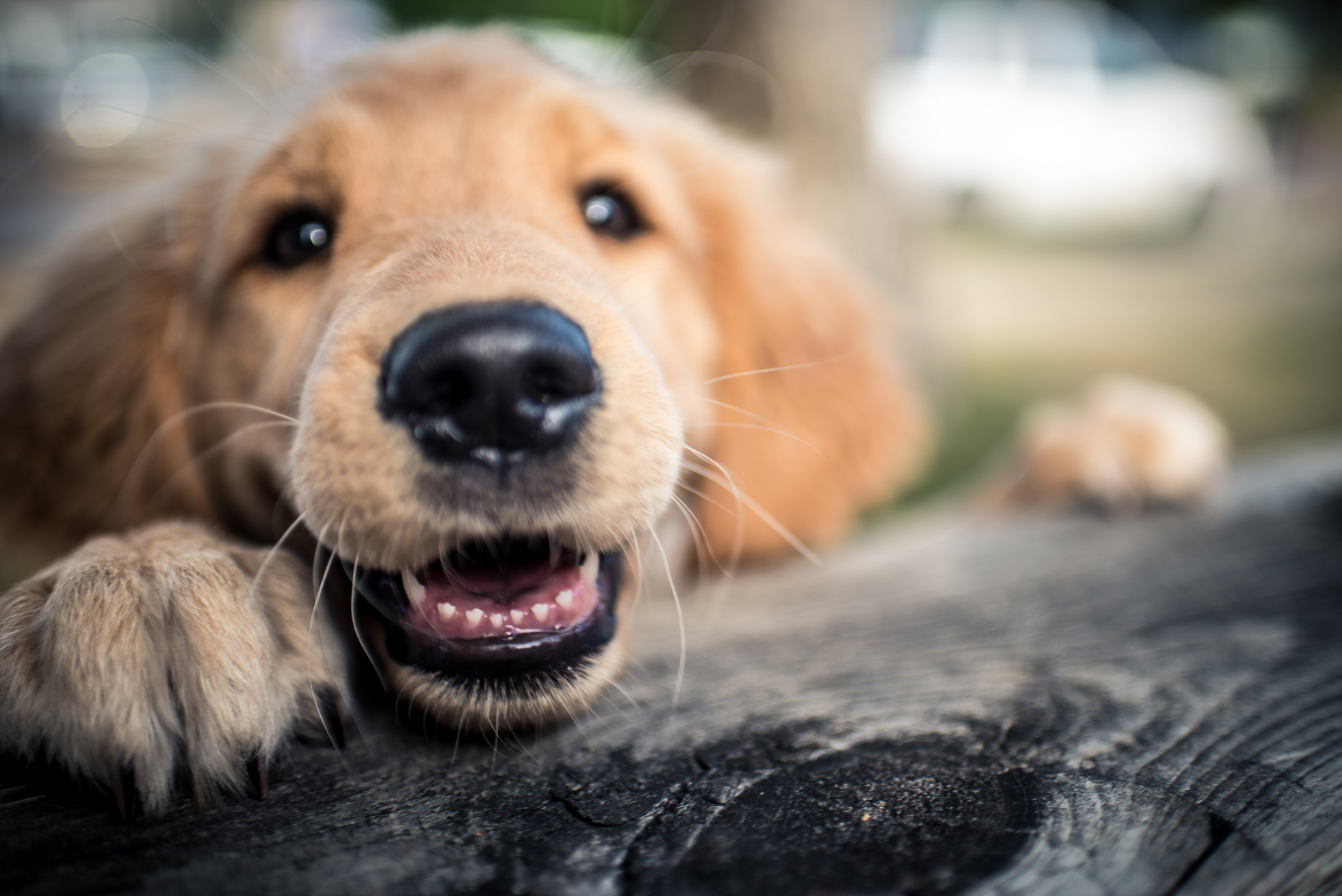The weight of your Golden Retriever will fluctuate throughout their lives. It’s different between males and females and you should expect their weight to steadily increasein the first 18 months of their life.
Nonetheless, there’s a rough guideline for how much your Golden Retriever should weigh:
- A healthy full-grown male Golden Retriever should weigh between 27 and 34kg.
- A healthy full-grown female Golden Retriever is usually between 25 and 32kg.
- A Golden Retriever puppy’s weight will change constantly, growing between 5 and 10% bigger each week!
If your Golden Retriever suddenly loses or gains weight with no obvious cause, a checkup with the vet is advised. Similarly, if your puppy isn’t gaining weight or growing as they should be, you should contact your vet for advice.
Read on for how to tell if your Golden Retriever is over, under, or an ideal weight as well as how to manage their weight, and more!
How Can I Tell if My Golden Retriever Is Overweight?
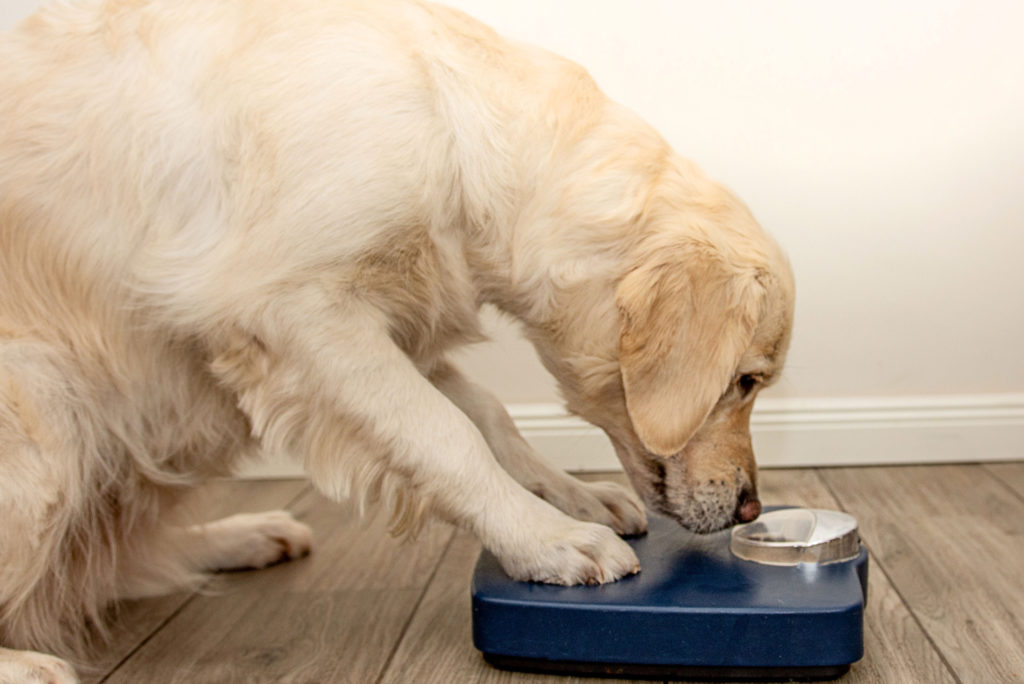
There are some telltale signs which you can look out for to check your Golden Retriever’s weight.
Aside from using scales to weigh your pet and monitoring their overall weight, there are a few ways you can visually check their rough weight at home:
| Underweight | Ideal Weight | Overweight |
| Ribs are highly visible/protruding | An outline of the ribs can be felt, and sometimes seen depending on the length of their fur | Rounded body, cannot feel or see the ribs |
| Hip bones jut out when viewed from above | – | Rounded stomach when viewed from the side |
| Very narrow waist when viewed from above. Overly bony body | Visible waist when viewed from above | Rounded waist when viewed from above |
How Can I Prevent My Golden Retriever From Becoming Overweight?
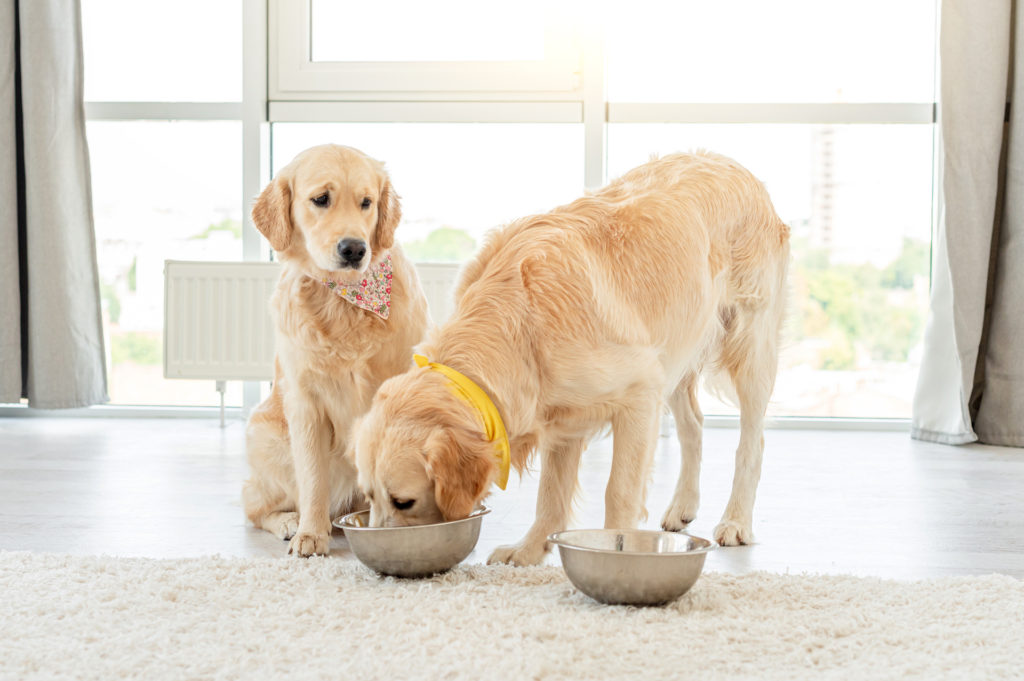
Golden retrievers are an incredibly food-motivated breed. This means that they’ll do just about anything for a treat or an extra bit of food.
With this in mind, it’s wise to monitor their food and treat intake to ensure that they maintain a healthy weight.
You should measure their food and be strict with sticking to meal times no matter how much they pester you.
If you have multiple dogs, consider feeding them separately so you can gauge how much each dog consumes. The same goes for other pets – eating the cat’s food won’t do your Golden Retriever any good.
Tips for keeping your Golden Retriever’s weight under control:
- Try not to overfeed treats (no matter how sweet their puppy-dog-eyes are!)
- If you use treats as a reward whilst training, adjust your dog’s meal sizes to compensate.
- If your Golden is fed dry pellets, consider using some of these as treats.
- Avoid unhealthy scraps/treats.
- Keep your Golden active with two decent-sized walks per day – preferably around 30 to 40 minutes each.
- Play with your Golden Retriever at home. Moving around and staying active will make a difference in their daily exercise.
- Check and follow the manufacturer’s instructions from the dog food.
Adult Golden Retrievers should get at least two hours of exercise per day. This can be done through a variety of ways such as walking, swimming, or playing.
Why Is It Important to Keep My Golden Retriever’s Weight Under Control?
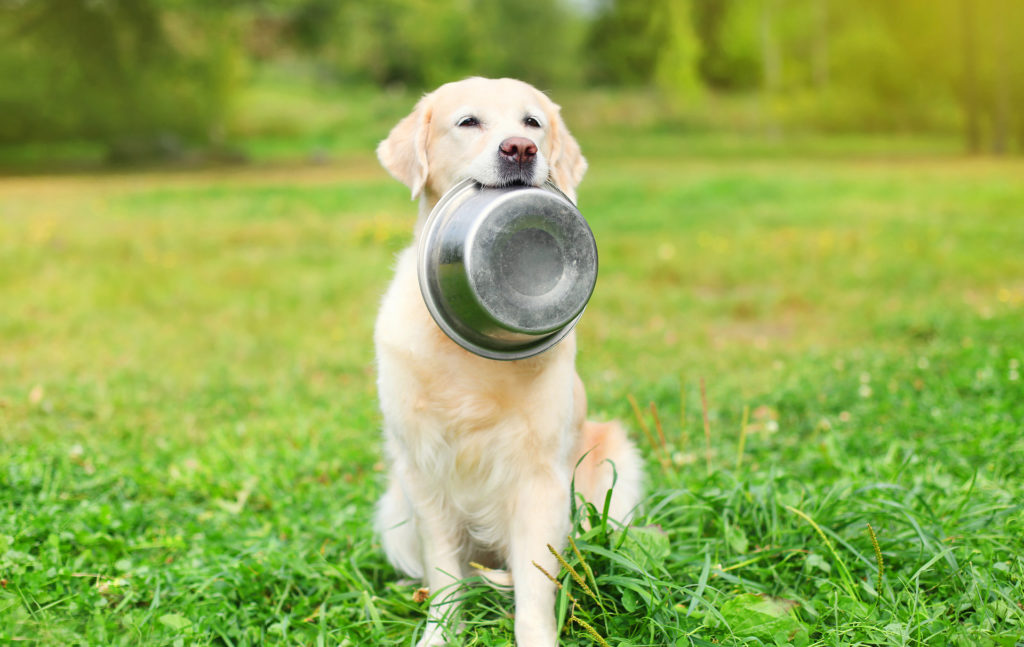
Golden Retrievers have the sweet puppy-dog-eyes trick nailed and it can be extremely tempting to give in and reward them with treats and scraps from your plate.
If your Golden Retriever becomes overweight this can be detrimental to their health and lead to more serious illness.
There are a number of ailments that Golden Retrievers, unfortunately, seem more prone to getting, including:
- Hip/elbow dysplasia
- Congenital eye defects
- Hypothyroidism
- Certain cancers
- Epilepsy
Sustaining a healthy weight is always a good way to keep your Golden Retriever in tip-top condition to avoid health issues. It doesn’t always guarantee that your pup won’t ever get poorly, but it certainly helps.
This means keeping an eye on their diet and ensuring they receive regular exercise.
Carrying extra weight can also be hard on their joints and bones and if they already have issues with their hips/elbows this can add to their discomfort. In this case, it’s easier to take preventative measures than it is to help them lose weight and get healthy again.
What Else Can Cause Weight Gain in Golden Retrievers?
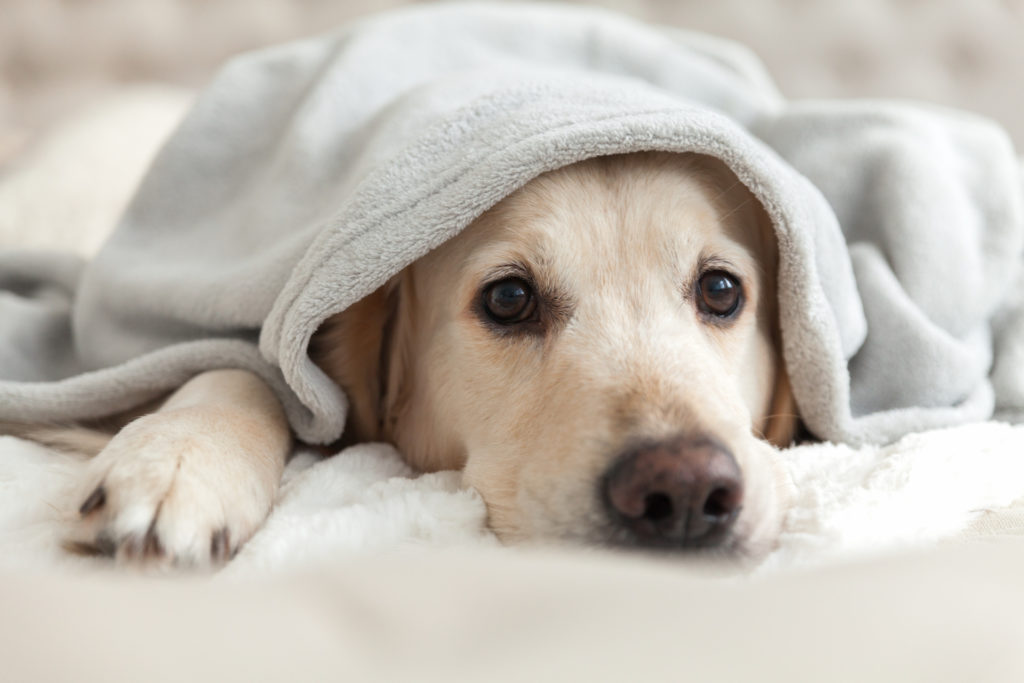
If you feed your Golden Retriever at the same time every day, in the same bowl, with the same food but suddenly you notice that they seem to be piling on the pounds, you’ll probably be wondering why.
This could be age-related, a side-effect from an illness, and more. Read on for a deeper look into all the reasons.
Top Reasons Why Your Golden Retriever Might Be Gaining Weight
The Time of the Year
In the summer, you probably spend more time in the garden or outside with your dog, playing and visiting places. When the days are longer their walks might be longer too. The local beer garden is open and dogs are welcome. Your Golden spends a lot more time up and about.
When winter hits, the days are short and cold, walks may decrease in length to avoid downpours. You’re both suddenly spending a lot more time indoors by the fire instead.
You should consider adjusting your dog’s food to match their activity levels. Less activity means less food needed, while more activity means more fuel required.
Their Age
Your Golden Retriever may have naturally slowed down as they’ve gotten older. It may mean that their energy levels have decreased along with their activity levels. They’re moving less but still consuming the same amount of food. This results in weight gain.
This isn’t something to worry about, pretty much every dog reaches a point where they just aren’t as energetic as they used to be. The important thing here is that you adjust their food and treat intake to avoid them becoming obese.
If They Have an Illness
A lot of illnesses may result in weight loss but you should be aware of illnesses that could cause weight gain too.
Some Golden Retrievers develop hypothyroidism which generally (but not always) shows up in dogs aged between 4 and 10 years old.
The thyroid is a gland found in their neck which produces a hormone to regulate the process of turning food into fuel.
If your dog has HYPOthyroidism (not to be confused with HYPERthyroidism) this means that the thyroid is producing a lower level of this hormone than is needed for their metabolism to work productively.
This causes weight gain in dogs – even though you might actually notice a decrease in appetite. Other symptoms can include flaky/dry skin and hair loss or dull and thin fur, lethargy, ear infections, cold intolerance, and low heart rate.
Speak to your vet if you suspect this – as the sooner you get it under control the better and it’s generally very easy to treat.
Related Questions
At What Age Will My Golden Retriever Be Fully Grown?
Golden Retrievers usually reach their full adult weight by the time they’re 18 months old. They’ll grow quite rapidly from birth up until this point, and then maintain a similar weight going forward. If your Golden Retriever isn’t growing as you think they should be, it’s worth speaking to a vet for advice.
What Affects How Much a Golden Retriever Puppy Grows?
Your puppy will keep growing until they’re around 18 months old. How much they grow can be affected by a few factors such as their sex (males are usually bigger than females), their genetics, and what age they’re spayed or neutered. It can also be affected by what they eat and other lifestyle factors.
What Makes a Good Treat for Your Golden Retriever?
The healthiest treats for Golden Retrievers are low in fat, salt, and sugar. They should be small enough that they won’t get stuck in your Golden’s throat or cause a blockage. Make sure that you account for treats with the rest of their diet too – extra treats might mean fewer pellets in their evening meal.
You can research treats that you can get from pet shops, but certain fruits and vegetables also make great treats. Food like apples, carrots, and green beans. Make sure that they’ve been cut into small pieces and any seeds removed. The vegetables can either be raw or cooked. To learn more, check out this article.
